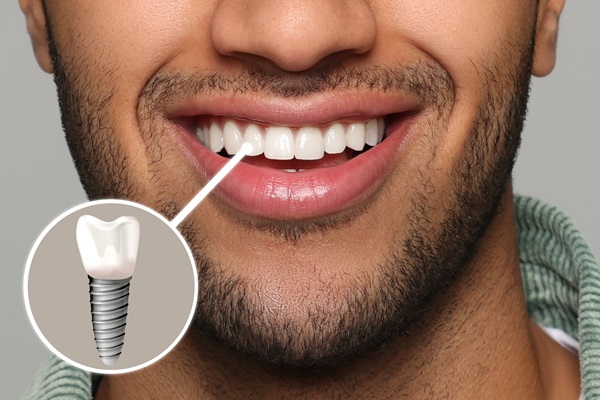Can Dental Implants Support a Dental Bridge?

Looking for information on dental implants? If you have suffered significant tooth loss, but not enough to need a complete arch replacement, you can get a dental bridge supported by dental implants. Implant-supported bridges can provide a reliable, functional, and long-term solution to tooth loss. Unlike traditional bridges or removable partial dentures, a dental implant-supported bridge will not need the support of the surrounding healthy teeth.
How do bridges supported by dental implants work?
In a traditional dental bridge, existing teeth on the sides of the missing tooth are filed down and covered with dental crowns that will support the new false tooth. This means that there had to be healthy teeth on the jaw to hold the bridge. It has been used for decades for replacing a lost tooth. Bridges are usually created from porcelain, so they are customizable to match the remaining teeth.
With implant-supported bridges, dental implants are inserted into the jaw, providing a solid anchor as the bone and the titanium post fuse together. A bridgework of false teeth is fabricated to match the shape, size, and color of the existing teeth. The bridge is then attached to the implant.
After the implants are placed, patients will need to keep up with dental checkups to ensure the bone is healing correctly. The success of the procedure depends on the osseointegration process. Using dental implants to support a dental bridge makes it more stable and functional.
The benefit of implant-supported dental bridges
Implant-supported dental bridges do not require natural teeth. Each end of the bridge is anchored to a single dental implant. They are suitable in cases of multiple missing teeth. They make it possible to replace more teeth than a conventional bridge. As many as three to five teeth can be restored at one time. Implants are incredibly strong and can handle more weight than a regular tooth.
Regular bridges weaken eventually. Decay can occur around the supporting teeth. Bone loss can compromise their fitting. Most traditional bridges need to be replaced every decade or so. In a few decades, patients may end up paying for two or three dental bridges.
The constant repair and refitting of bridges cause the deterioration of the supporting teeth. Eventually, there may not be enough enamel to perform the process. If issues occur with only one tooth, it may be difficult for the other healthy tooth to provide support to the bridge adequately. Therefore, there are more risks with traditional bridges than using implants to support a bridge.
An implant-supported bridge lasts longer than regular bridges. The tooth restoration can last a lifetime with proper care and maintenance. Even if the bridgework deteriorates, the implants underneath will not need to be replaced or refitted. Implants are considered the most durable tooth replacement option available. Once the bone fuses with them, the implants are secure and help to improve bone quality.
Are you considering getting dental implants?
Tooth replacement with a dental bridge supported by dental implants can help to maintain the natural alignment of the teeth. To know whether you are eligible for this option, book an appointment with an experienced dentist. The sooner the replacement is done, the better.
Request an appointment here: https://www.drroberttamaki.com or call Dr. Robert B Tamaki, DDS at (310) 402-0156 for an appointment in our Los Angeles office.
Check out what others are saying about our dental services on Yelp: Dental Implants in Los Angeles, CA.
Related Posts
Dental implants are small, titanium screws placed into the jawbone where a tooth was removed. The implant fuses with the jawbone over time and supports a crown, bridge, or denture. This article will review six warning signs that it is time to inquire about dental implants.Many people (adults) postpone receiving treatment after losing a tooth…
Having dental implants can correct tooth loss, which is the primary reason for getting these dental replacements. Other reasons for getting them may determine if you are a good candidate for this treatment. Knowing if you are a good candidate for dental implants can help you prepare well for your next appointments. Here are the…
Studies show that dental implants remain the gold standard in dental restorations. These dental replacements are the most stable ones that you can get. It may be invasive, but once it heals well, you will have good dental function again. Here are the details about the process of getting dental implants.The dentist will examine the…
Dental implants replace missing teeth and help with chewing, speaking, and smiling. They can consist of titanium or a combination of titanium and ceramic materials. Dental implants serve as anchors for artificial replacements: full dentures, partial dentures, dental crowns, and bridges. If you are considering dental implants, this guide will help you know what to…
